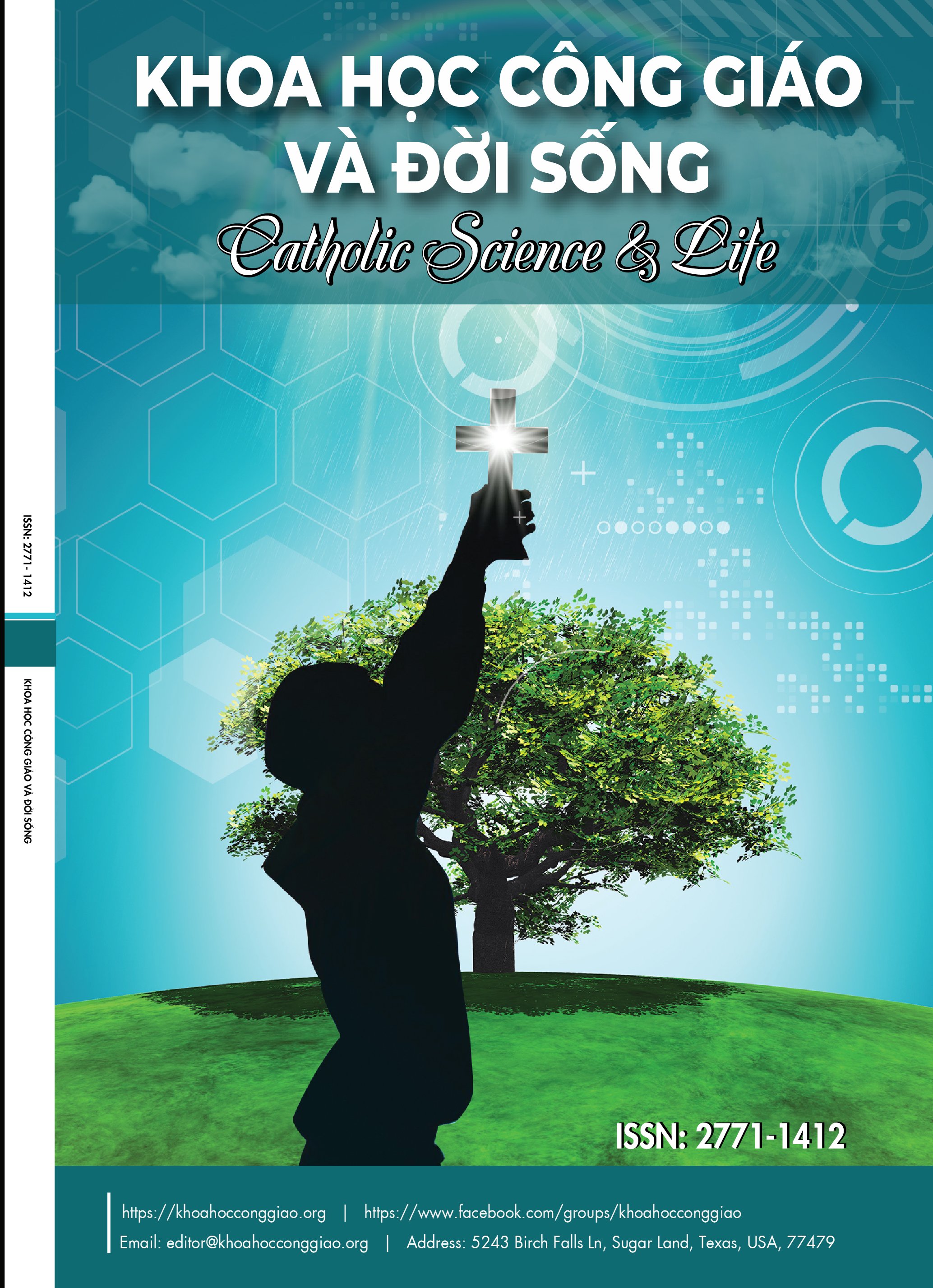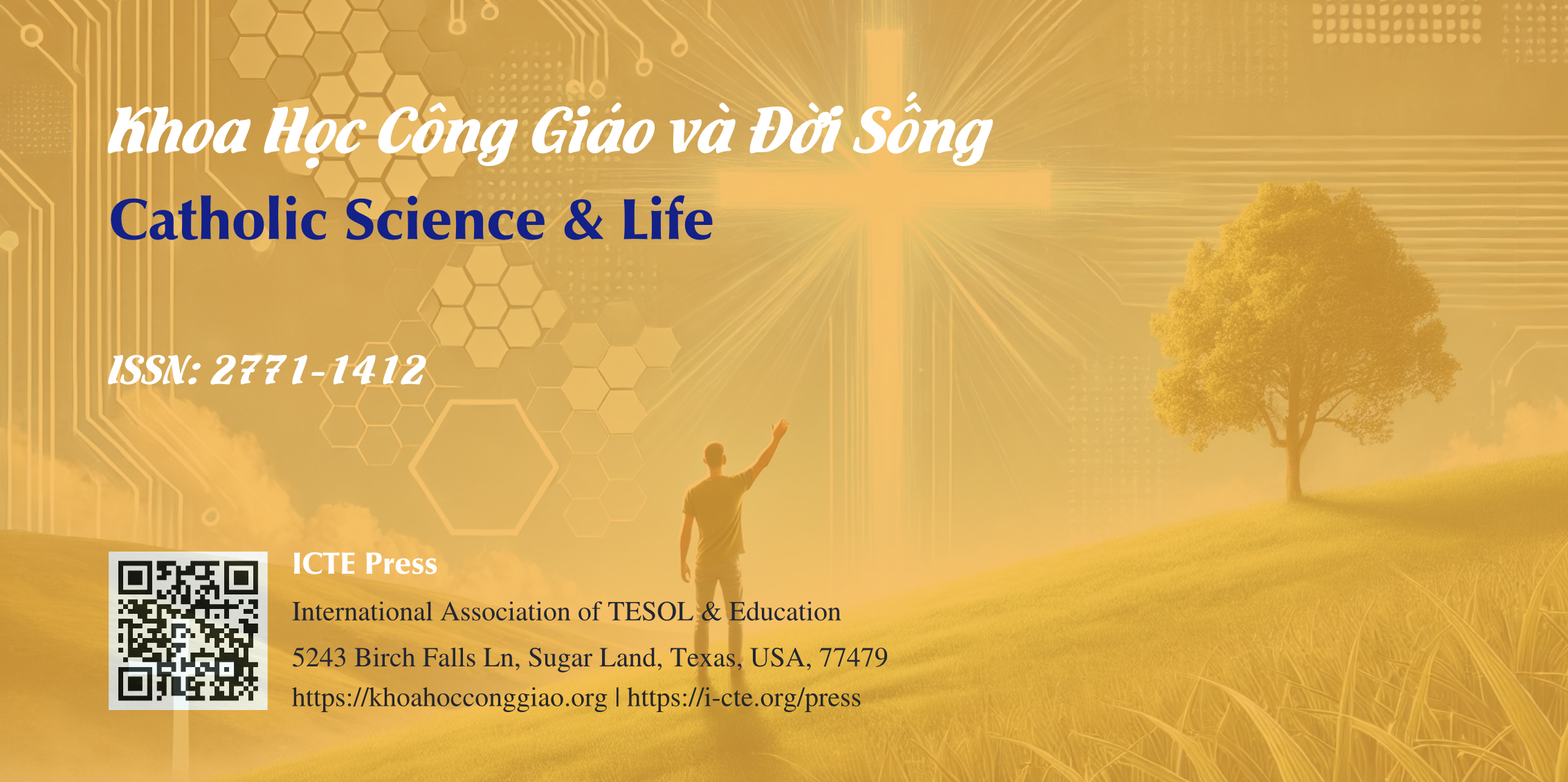Multicultural Education in Xavier Learning Community, Chiang Rai Province, Thailand
DOI:
https://doi.org/10.54855/csl.244313Từ khóa:
critical thinking, ethnicity, reflection, ThailandTóm tắt
The purpose of multicultural education is not only to preserve cultural traditions among multiethnic students but also to foster critical thinking and reflection on their newly acquired knowledge and on the events occurring around them. While many countries have already focused on the different needs of their student population integrating multicultural education, Thailand’s implementation has been limited, particularly at the preschool and secondary levels in some public schools. This research addresses this gap by focusing on a higher education institution in northern Thailand, Xavier Learning Community (XLC), which caters to students from various religions and ethnic backgrounds. The study aims to understand how XLC implements multicultural education to foster an inclusive learning environment. Employing qualitative research methods, such as participant and non-participant observation, interviews with 25 participants (including Jesuit priests, teachers, lecturers, and students), and document analysis, the research examines the curriculum and activities at XLC that promote multicultural education, critical thinking, and reflection. The research findings indicate that XLC embodies the principles of multicultural education by providing equal educational opportunities, preparing students for a diverse society, and promoting awareness of social justice. XLC’s approach effectively integrates students’ cultural backgrounds into the curriculum, creating an inclusive and supportive learning environment. Notably, critical thinking and reflection courses empower students to address social issues in Thailand. This study provides insights into the effective implementation of multicultural education in higher education settings, emphasizing its potential to establish inclusive and equitable learning environments.Tài liệu tham khảo
Arphattananon, T. (2018). Multicultural Education in Thailand. Intercultural Education, 29 (2), pp. 149 – 162. https://doi.org/10.1080/14675986.2018.1430020
Arphattananon, T. (2020). Breaking the Mold of Liberal Multicultural Education in Thailand through Social Studies Lessons. The Clearing House: A Journal of Educational Strategies, Issues and Ideas, 94 (2), pp. 53-62. https://doi.org/10.1080/00098655.2020.1860873
Ash, S.L., & Clayton, P. H. (2009). Generating, deepening, and documenting learning: The power of critical reflection in applied learning. Journal of Applied Learning in Higher Education, 1(1), pp. 25–48.
Banks, J. A., & Banks, C. A. M., (Eds.). (2015). Multicultural Education: Issues and Perspectives, 9th ed. United States of America: John Wiley & Sons, Inc.
Buadaeng, K., & Leepreecha, P. (2009). Modern education systems and impact on ethnic minorities. In Baron-Gutty Audrey and Supat Chupradit (Eds.), Education, Economy and Identity: Ten Years of Educational Reform in Thailand (pp. 37–53). Bangkok: IRASEC.
Dawson, A. S. (2012). Histories and Memories of the Indian Boarding Schools in Mexico, Canada, and the United States. Latin American Perspectives, 39(5), pp.80–99. https://doi.org/10.1177/0094582X12447274
Haibo, Y. (2007). Identity and Schooling among the Naxi. Asian Ethnicity, 8(3), pp. 235–244. https://doi.org/10.1080/14631360701594984
Ilyasin, M., & Tohet, M. (2020). Multicultural Education In A Religious Life: Developing Harmony Among Religions In Southeast Asia. In Proceedings of the International Conference on Industrial Engineering and Operations Management, 3791-3801.
International Center for Jesuit Education. (1993). Ignatian Pedagogy: A practical Approach. Retrieved May 12, 2023, from https://www.sjweb.info/documents/education/pedagogy_en.pdf
Leepreecha. P., & Meixi. (2019). Indigenous Educational Movements in Thailand. In McKinley, E., Smith, L. (Eds). Handbook of Indigenous Education (pp. 695–724). Springer, Singapore. https://doi.org/10.1007/978-981-10-3899-0_55
Leepreecha, P., & Sakboon, M. (2021). การศึกษาเพื่อความเป็นไทยกับกลุ่มชนพื้นเมืองในภาคเหนือ [Education for Being Thai-ness among Indigenous People in the North] Thammasat Journal, 40(2), pp. 68–97.
Lipman, M., Sharp, A. M., & Oscanyan, F. S. (2010). Philosophy in the classroom. West Caldwell, NY: Universal Diversified Service.
Morton, M.F. (2016). The Indigenous Peoples' Movement in Thailand Expands. ISEAS-Yusof Ishak Institute.
Nesterova, Y. (2019). Multiculturalism and multicultural education approaches to Indigenous people's education in Taiwan. Multicultural Education Review, 11(4), pp. 253–270. https://doi: 10.1080/2005615X.2019.1686561.
Nowacek, R. S., & Mountin, S. M. (2012). Reflection in action: A signature Ignatian pedagogy for the 21st century. In Exploring More Signature Pedagogies (pp. 129–142). Routledge.
Robson, C., & McCartan, K. (2016). Real World Research (4th ed.). India, Wiley Global Education.
Ruankool, N. (2022). A ‘learning community’ as a social justice model for Catholic education in Thailand. International Studies in Catholic Education, 14(2), 183–196. https://doi.org/10.1080/19422539.2022.2104555
Ruankool, N. (2023). COVID-19 and religious education reimagined: discovering a reflective space through Hannah Arendt’s concept of thinking. British Journal of Religious Education, 46(3), 236-244. https://doi.org/10.1080/01416200.2023.2233055
Tangkijaroenkun, T., Naowarat, N., & Jatuporn, O. (2022). Multicultural Literature for Multicultural Education: Idealism, Reality and Practicality in a Thai Tertiary Education Context. LEARN Journal: Language Education and Acquisition Research Network, 15(1), 548-564.
UNICEF Thailand. (2019). Education knows no border: A collection of good practices and lessons learned on migrant education in Thailand. Bangkok: UNICEF Thailand. Retrieved October 15, 2022, from https://www. unicef.org/thailand/reports/education-knows-no-border
Vaddhanaphuti, C., Sitthikriengkrai, M., & Hinterberger, C. T. (2022). Imagining Ethnic Communities: Resource Conflicts and Development in Thailand. Chiang Mai: Center for Ethnic Study and Development (CESD), Faculty of Social Sciences, Chiang Mai University.
Xavier Learning Community (XLC). (2018). Growing in Community, Sharing with society.
Tải xuống
Đã Xuất bản
Số
Chuyên mục
Giấy phép
Bản quyền (c) 2024 Joseph Nguyen Phu Cuong, S.J.

Tác phẩm này được cấp phép theo Giấy phép quốc tế Creative Commons Attribution-NonCommercial 4.0 .
Authors retain copyright and grant the journal the right of first publication with the work simultaneously licensed under a Creative Commons Attribution 4.0 International License that allows others to share the work with an acknowledgment of the work's authorship and initial publication in this journal.
Authors are able to enter into separate, additional contractual arrangements for the non-exclusive distribution of the journal's published version of the work (e.g., post it to an institutional repository, in a journal or publish it in a book), with an acknowledgment of its initial publication in this journal.













